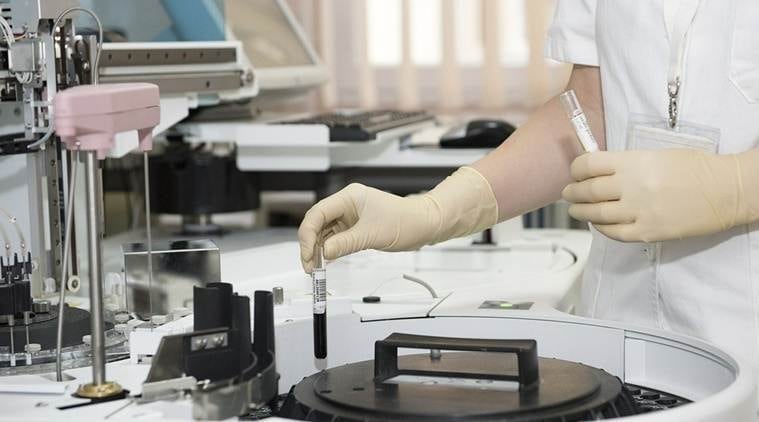 An officer from Pune was sent to Kerala to verify details and requests were sent to private charitable firms in the city so that the deal to procure the machine could be clinched immediately. (Representational Image)
An officer from Pune was sent to Kerala to verify details and requests were sent to private charitable firms in the city so that the deal to procure the machine could be clinched immediately. (Representational Image)
After an alarming increase in the number of coronavirus deaths at Sassoon General Hospital — 34 in the past fortnight — the Pune district administration is in the process of procuring a plasma separator. It has also urged the central government to approve a clinical trial using plasma treatment for patients who are seriously ill.
“We want to be ready to provide any help to doctors who are trying their best to treat critically ill patients in the ICU,” District Collector Naval Kishore Ram told The Indian Express. The Indian Council of Medical Research (ICMR) has already given approval to the Kerala government to begin convalescent plasma therapy on a trial basis.
Some countries like China and the United States have tried the plasma treatment method, where the plasma of a patient who has recovered, and whose blood contains antibodies to fight the virus, is infused into patients who are critically ill.
According to a source, only one plasma separator was available with the Indian subsidiary of a Japanese firm in Kerala.
An officer from Pune was sent to Kerala to verify details and requests were sent to private charitable firms in the city so that the deal to procure the machine could be clinched immediately.
The Avinash Bhosale Infrastructure Limited (ABIL), a firm based in Pune, agreed to help. It has already paid an initial installment of Rs 15 lakh.
“We had a request for the machine from Sassoon General Hospital, so we have already made a payment of Rs 15 lakh. The balance payment of Rs 8 lakh will be cleared once the machine is received at the hospital,” an ABIL official told The Indian Express.
While ICMR officials were unavailable for comment, Sassoon Hospital authorities said they had applied for approval for a randomised controlled trial.
Of the 43 coronavirus deaths in Pune, 34 have taken place at the Sassoon General Hospital. The district administration is making efforts to provide the latest medical equipment to the hospital, setting up contacts with doctors from Kerala and getting expert doctors from private hospitals on board to reduce the high mortality rate, officials said.
Pune authorities have installed state-of-the-art equipment at Sassoon Hospital’s ICU and reserved two floors at the new super specialty building for coronavirus patients. On Wednesday, six intensivists from private hospitals were also brought in to treat patients.
Currently, 66 coronavirus patients have been isolated and at least 40 with suspected symptoms, who are the close contacts of patients, have been admitted to another ward in the super specialty building.
Standardised treatment protocol soon
Respiratory failure from acute respiratory distress syndrome is the leading cause of mortality in coronavirus cases. While experts across three committees in Mumbai and Pune have been meeting to decide on a standard treatment protocol that can be followed across ICUs for critically ill patients, Dr Archana Patil, director of health, Maharashtra, said it was important to treat patients in the early stage of the illness.
“Doctors are studying and analysing the deaths and evidence that is emerging about patients with severe coronavirus,” said Dr Subhash Salunke, a member of one of the expert committees.
There are cases of happy hypoxia, a state where the body’s oxygen concentration in coronavirus patients drops to 60 per cent, but not so low that patients feel uncomfortable. So patients feel normal till they deteriorate rapidly and collapse, said experts. There are other cases which suggest that the patient may have had cytokine storm syndrome — where the body’s immune system can trigger a runaway response that causes more damage to its own cells than to the invader it is trying to fight, doctors said.
Guidelines on a standardised treatment protocol will be released soon, said state health authorities.